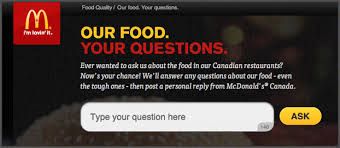Sustainability has become a buzzword in the world of marketing. There are so many companies currently preaching ethical and sustainable practices through their promotional campaigns in order to capture the new and prevalent “green consumer”. However, it is becoming more and more difficult to know which company is truly passionate about helping our environment or those who are simply trying to attract a larger customer base. “Green-washing” has become challenging to identify and companies solely preaching sustainability, rather then acting truly green are tricking many customers into believing their fallacies.
So how do companies who are taking steps towards fully sustainable business practices convince customers of their legitimacy? Honest two-way communication is essential. Marketing has evolved, becoming more relationship focused and less of a one-dimensional communication style. Because of this companies are starting to capitalize one this new way to promote and go one step further. Companies are now practicing transparent communication technique in many aspects of their business processes in order to convince consumers they are truly sustainable.
McDonald’s “Our Food, Your Questions” campaign was a perfect example of a company being practicing transparent two-way communication with their customers. Check out the campaign details at: http://yourquestions.mcdonalds.ca/. By allowing customers to ask real, non filtered questions about the ingredients of their food, McDonald’s communicated to customers that they were not afraid to be fully open with their customers. This translated in customers believing that McDonald’s sustainable preaching was not just simply to capture new consumers and McDonald’s found great success from this campaign.



Raman Johal
April 5, 2016 — 4:51 pm
Great post! Your incites into the evolution of marketing are particularly interesting. I agree that honest, two-way communication is essential for companies to gain the trust of consumers. I think another way for companies to differentiate themselves in their sustainable practices is to get certified. This is becoming quite popular these days and it’s not unusual to see packaging with a bunch of funny logos from different certification organisations. However, their prevalence has also led to their loss of meaning for consumers. If every product has a certification, does it really mean anything when we’re choosing between products? Some consumers may take it for granted that all products in a particular category have certification and not actually check (Energy Star is a good example of this). Also, it can be difficult to convey to consumers exactly what different certifications have been achieved for, leaving them with no more knowledge than they had before.
ChaoranZhang
April 10, 2016 — 11:41 pm
I totally agree on your opinion. Sustainability is a mindset and currently every industry needs to take their steps towards sustainability and being a green investor.
The MacDonald’s campaign you mentioned is a good technique to develop a two-way effective communication with their customers to let their customers get in trust with the company.
Despite the relationship with customers and gain more trust among them, the company should think what is the issue coming from and how can they change traditional investor to a more green investor. I think to identify the issue, a triple bottom line analysis needs to be completed. The TBL analysis illustrates that the success of one corporate is not only contingent on traditional financial bottom line, but also by its social and environmental performances. For example, high-end fashion brands have already understood that exquisite quality, high attention to details and premium customer services and experiences can have a positive effect on their target customer behavior, which can let them profit from the financial aspect. However, it is universally acknowledged that luxury fashion goods are special, customized and unique to their customers, which offer less sustainability inputs for their both operation and products.